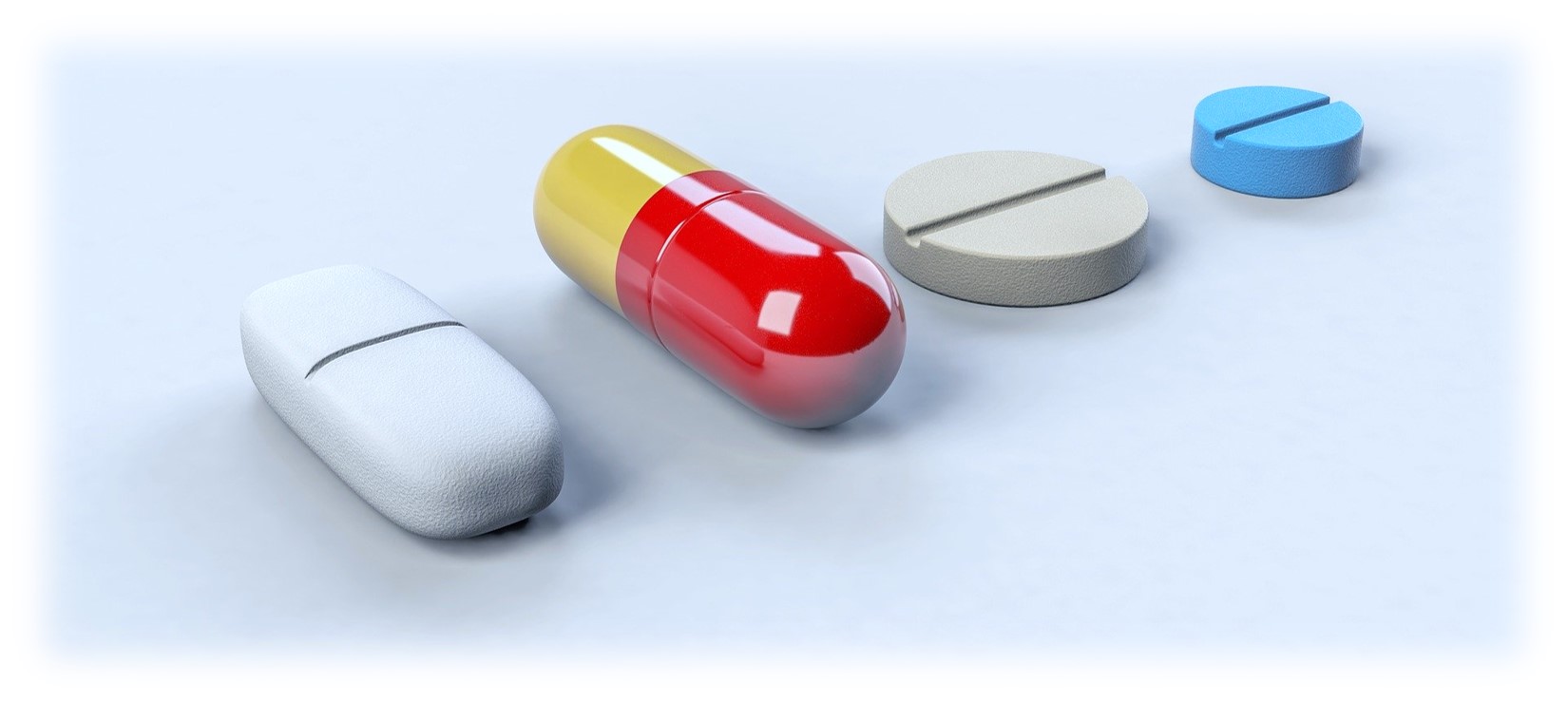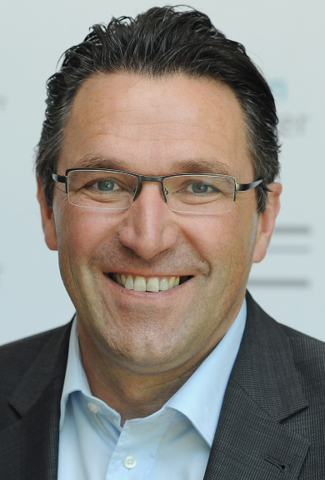
In Germany, as in the rest of the world, research into suitable drugs for the treatment of COVID-19 patients is in full swing. A drug that has been shown to be effective in preclinical studies and will soon be tested on patients is produced by a research company in Tübingen, Atriva Therapeutics GmbH. Founded in 2015, the company specialises in the development of antiviral therapies for severe respiratory diseases such as influenza or COVID-19. Chairman of the company's advisory board is the head of the office site of the German Research Platform for Zoonoses in Münster, Prof. Dr. Stephan Ludwig. We spoke with him about the company's promising drug candidate, ATR-002.
Prof. Ludwig, your research actually focuses on influenza viruses. How did you come up with the idea that a drug candidate originally developed against the influenza virus might also be effective against the new coronavirus?
Ludwig: Our approach to influenza does not focus on the virus itself, but on a factor in the infected cells that the virus needs for its replication. Influenza and corona viruses both belong to the group of RNA viruses and there has already been initial evidence from the literature that corona viruses are also dependent on the same cellular factor as influenza viruses. We could confirm this in our recent experiments for SARS-CoV-2.
What exactly are the effects of ATR-002?
Ludwig: The interesting aspect about our drug candidate is that it does not only have antiviral effects on the replication of the virus but also prevents the immune response from getting out of control. Especially in the late stages of COVID-19, this exuberant immune response is crucial for the severity of the disease.
"ATR-002, with its dual mechanism of action, can in principle be helpful over the entire course of the disease."
In which stage of the disease could ATR-002 be effective? Which patients might benefit from this drug?
Ludwig: Since in the early phases of the disease, the virus itself plays a role, but in the late phases, when the patient is very seriously ill, it is mainly the deregulated immune system that is responsible for the severe symptoms, ATR-002 with its dual mechanism of action can in principle be helpful throughout the entire course of the disease. However, the greatest benefit is achieved in intermediate phases, when we still have to fight the virus as well as ensure that the immune system does not go off track.
Many diseases are treated with a combination of different drugs. Would that also be the case for ATR-002?
Ludwig: Basically, ATR-002 is a combination of an antiviral agent and immunomodulator because of its dual mode of action. However, one could well imagine a further combination, for example with drugs that directly attack the virus, such as Remdesivir. In general, I believe that the future belongs to the application of a combination of active substances against viruses. The best example is HIV, where a whole cocktail of active substances is used to prevent resistance.
The drug candidate successfully completed the first tests. Now it is to be tested in a clinical phase II study on hospitalised COVID-19 patients with moderately severe courses. How exactly is such a study structured?
Ludwig: We are going to cooperate with an independent study centre that handles the planning and the conduction of the study. Our drug candidate will be administered to moderately diseases patients in different partner hospitals. Subsequently, its effects on virus load, disease symptoms, and progression of the disease will be monitored.
Will ATR-002 be tested on patients in Germany only or worldwide?
Ludwig: As the COVID-19 pandemic in Germany is now flattening out and therefore probably (and fortunately) only relatively few patients will come to hospitals here, we will probably also work with hospitals in other countries.
How long will the clinical testing take?
Ludwig: If everything runs optimal, we can already start the study by the end of July/ the beginning of August and obtain the first results in spring 2021. If the results will be positive, first clinical applications of the drug might already be possible under certain conditions in 2021.
Due to successful prevention and containment measurements, the number of COVID-19 cases in Germany is decreasing. However, in other countries case numbers are still high. The example of Remdesivir demonstrates how challenging the increase of production volumes can be to meet global demands. Is it realistic to believe that industrial production of ATR-002 in a big scale can be realised to meet a global demand?
Ludwig: Naturally, the industrial production of a compound takes its time, but ATR-002 is not complicated to synthesize. Nevertheless, we will need a big pharma partner that can provide such big production capacities.
"A very nice experience in this crisis is that people in the scientific community are extremely open in their exchange of ideas and help each other.”
Currently, a lot of companies and scientists worldwide are doing research on possible drug candidates against SARS-CoV-2. Is there any kind of exchange or coordinated joint action?
Ludwig: A very nice experience in this crisis is that people in the scientific community are extremely open in their exchange of ideas and help each other. At the level of companies, things are of course a bit different, since there is of course a lot of competition here. There are currently well over 100 different approaches to developing a drug against COVID-19. Therefore, I hardly believe that a single drug will be the winner in the end, but that we will have different compounds that will be used depending on the phase of the disease and possibly also in combination.

Prof. Dr. Stephan Ludwig is head of the institute of virology at the University of Münster and serves as the head of the office site of the German Reserach Platform for Zoonoses in Münster. As chairman of the advisory board at Atriva Therapeutics GmbH he is directly involved in the development of a drug candidate against COVID-19.
"Only through an interdisciplinary approach - [...] - can we effectively meet the challenges posed by zoonotic pathogens.”
In your field of expertise, influenza viruses, there are viruses that can pose a health threat to both humans and animals. The same applies to coronaviruses. Do you believe that a stronger networking of human and veterinary medicine could speed up the development of drugs and vaccines, in particular for zoonotic pathogens?
Ludwig: You see me as a passionate advocate of research networking on zoonotic infectious diseases. Only through an interdisciplinary approach - and here I am not just talking about human and veterinary medicine, but also about immunology, biology, ecology or geography among others - can we effectively meet the challenges posed by zoonotic pathogens.
The example of your drug candidate shows that cooperation between different research areas, such as in this case influenza and coronavirus research, can lead to promising results. In your opinion, is this interdisciplinary cooperation already taking place to a sufficient extent or what should be done to further promote the transfer of knowledge across disciplines?
Ludwig: Research in networks is increasing all the time and research funding parties have also recognized the importance of such interdisciplinary approaches. Unfortunately, however, funding formats are often very limited in time, so that network structures that have been built up with great effort, despite obvious success, fall apart again due to lack of funding. This is where innovative, sustainable funding strategies are needed, which must not be rigid, however, but must continue to allow flexibility.
Prof. Ludwig, thank you very much for the interview!
Interview: Dr. Dana Thal i. A. for the German Research Platform for Zoonoses



